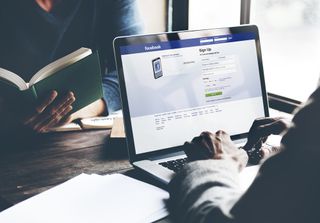Too Much Social Media Use Linked to Feelings of Isolation

Fans of social media may say that all of that posting and liking helps connect them with others, but a new study finds that spending more time on social media platforms is actually linked to a higher likelihood of feeling socially isolated.
Social isolation — which the researchers defined as a lack of a sense of belonging, true engagement with others and fulfilling relationships — has been linked to an increased risk of illness and death, according to the study.
Currently, "mental health problems and social isolation are at epidemic levels among young adults," lead study author Dr. Brian Primack, director of the University of Pittsburgh's Center for Research on Media, Technology and Health, said in a statement. [9 Odd Ways Your Tech Devices May Injure You]
Although it's possible that increased social media use could help alleviate feelings of social isolation, increased social media use could also have the opposite effect in young adults, by limiting in-person interactions, the researchers wrote in the study, published today (March 6) in the American Journal of Preventive Medicine.
In addition, social media can give people the impression that others are leading happier lives, because people sometimes portray themselves unrealistically online, the researchers wrote.
To determine how social media use and feelings of social isolation were linked, the researchers sent questionnaires to more than 1,700 U.S. adults ages 19 to 32. The questionnaires assessed how socially isolated a person felt, as well as how much and how often the participant used 11 popular social media platforms, including Facebook, Twitter and Instagram. [Top 10 Golden Rules of Facebook]
On average, the people in the study spent just over an hour (61 minutes) each day on social media, and visited social media sites a median of 30 times each week, the researchers found.
Sign up for the Live Science daily newsletter now
Get the world’s most fascinating discoveries delivered straight to your inbox.
A little more than a quarter (27 percent) of the participants reported feeling high levels of social isolation, the researchers found. And greater social media use was linked to greater feelings of social isolation, according to the study.
For example, compared with the people in the study who spent less than 30 minutes each day using social media, those who used social media for more than 2 hours daily were about twice as likely to report feeling high levels of social isolation, the researchers found. In addition, compared with people who checked social media sites fewer than nine times a week, those who visited social media sites 58 or more times a week were about three times as likely to report feeling high levels of social isolation.
However, the findings represent a bit of a chicken-or-egg situation, the researchers noted.
"We do not yet know which came first — social media use, or the perceived social isolation," senior study author Dr. Elizabeth Miller, a professor of pediatrics at the University of Pittsburgh School of Medicine, said in a statement.
"It's possible that young adults who initially felt socially isolated turned to social media. Or, it could be that their increased use of social media somehow led to feeling isolated from the real world. It could also be a combination of both," Miller said.
"But even if the social isolation came first, it did not seem to be alleviated by spending time online, even in purportedly social situations," Miller said.
Originally published on Live Science.

Most Popular


